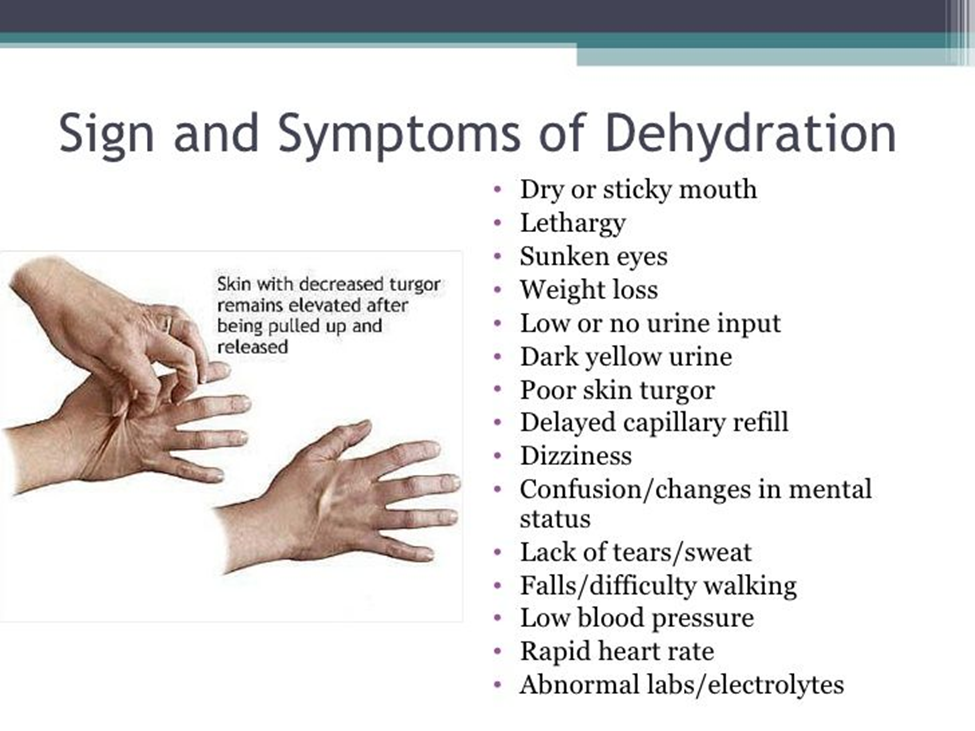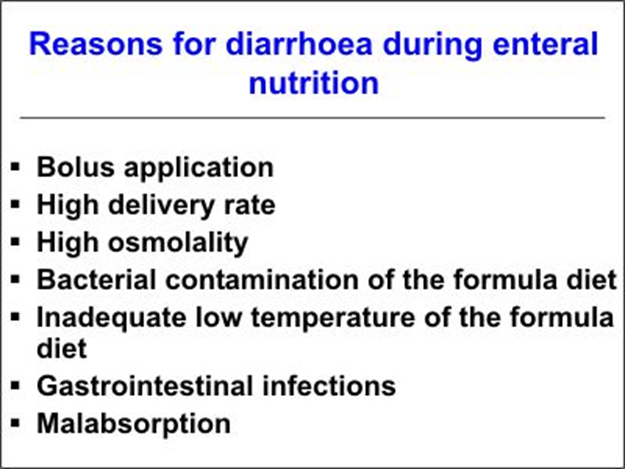A nurse in a community clinic is collecting data from an older adult client who has a body mass index of 17.5. When evaluating the client for dehydration, the nurse should look for which of the following indications of fluid-volume deficit?
Tenting
Protruding eyeballs
Elevated blood pressure
Dry mucous membranes
The Correct Answer is A
A. Tenting
Tenting refers to the delayed recoil of the skin when pinched. In a dehydrated state, the skin loses elasticity, leading to tenting due to decreased skin turgor. This is a specific sign of fluid-volume deficit.
B. Protruding eyeballs
Protruding eyeballs are not typically associated with dehydration. This could be related to other conditions such as thyroid dysfunction, but it is not a specific indicator of fluid-volume deficit.

C. Elevated blood pressure
Elevated blood pressure is not a typical sign of dehydration. In fact, dehydration often leads to a decrease in blood pressure due to reduced blood volume.
D. Dry mucous membranes
Dry mucous membranes can be an indication of dehydration, but in the context of the question, tenting (Option A) is a more specific sign related to skin turgor and is commonly assessed when evaluating for dehydration.
Nursing Test Bank
Naxlex Comprehensive Predictor Exams
Related Questions
Correct Answer is B
Explanation
A. Electrolyte imbalances
Administering diluted enteral feedings is not typically done to address electrolyte imbalances. Instead, monitoring the electrolyte levels in the patient's blood and adjusting the content of the enteral formula (such as adjusting the concentration of electrolytes) would be more appropriate.
B. Diarrhea
Administering diluted enteral feedings is a strategy that may be employed to prevent or manage diarrhea. High concentrations of nutrients can overwhelm the gastrointestinal tract, leading to diarrhea. Diluting the formula helps reduce the risk of this complication.
C. Constipation
Administering diluted enteral feedings is not typically done to address constipation. Management of constipation is more commonly achieved through adjustments in fiber intake, fluid intake, and medications as needed.
D. Delayed gastric emptying
Administering diluted enteral feedings is not a standard approach for addressing delayed gastric emptying. Instead, adjustments in the rate of enteral feedings or specific interventions for delayed gastric emptying, such as medication or changes in positioning, would be considered.

Correct Answer is B
Explanation
A. “I wish I didn’t have to attach the electrodes to my skin.”
This statement reflects a common sentiment. Attaching electrodes to the skin is part of using TENS, and it's a non-invasive procedure where electrodes are placed on the skin surface to deliver electrical impulses for pain relief.
B. “It’s unfortunate that I have to be in the hospital for this treatment.”
This statement indicates a need for further teaching. TENS is typically an outpatient treatment, and individuals can use TENS units at home after receiving appropriate instructions and training. It does not require being in the hospital.
C. “I’ll need to shave the hair off the skin where I place the electrodes.”
This statement is accurate. To ensure proper contact and effectiveness, it is often recommended to shave or trim the hair in the area where the electrodes will be placed.
D. “I hope I don’t have to take as many pain pills.”
This statement reflects an understanding of the potential benefits of TENS. TENS is used as an adjunct therapy to help manage pain, and one of its goals may be to reduce the need for pain medications.
Whether you are a student looking to ace your exams or a practicing nurse seeking to enhance your expertise , our nursing education contents will empower you with the confidence and competence to make a difference in the lives of patients and become a respected leader in the healthcare field.
Visit Naxlex, invest in your future and unlock endless possibilities with our unparalleled nursing education contents today
Report Wrong Answer on the Current Question
Do you disagree with the answer? If yes, what is your expected answer? Explain.
Kindly be descriptive with the issue you are facing.
